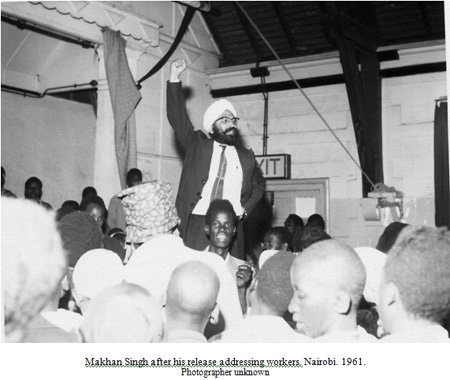On this day in 1950, a general strike in Nairobi, Kenya began after two trade union leaders were arrested, paralyzing airport travel and public services and leading to the state arresting labor organizers en masse.
The Nairobi General Strike was the culmination of Kenya's post war strike wave and urban upheaval, also coming on the heels of a general strike in Mombasa in 1947, led by the African Workers Federation (AWF).
In the decade leading up to the strike, Nairobi's population more than doubled to at least 100,000, mostly attributable to wartime migration into the city. This was fueled by serious problems of landlessness in the Kikuyu reserves, which were pushing out increasing numbers of ahoi. The land litigation cases that followed, especially in Kiambu, saw the losers becoming either workers in their former lands, now owned by the growing elite of commercial farmers, or simply leaving for Nairobi.
On the morning of May 15th, Fred Kubai and Makhan Singh, leaders in the East African Trades Union Congress (EATCU), were arrested by and charged with being officers of an unregistered trade union refusing to dissolve within the three month notification period.
Later the same day, members of the EATCU declared a general strike to begin on the 16th, but by evening a general strike was already in effect all over Nairobi.
The strike paralyzed airport travel, public services, and greatly limited commercial business. Strike leadership called off the action after a week's worth of protest, disseminating a return-to-work order for May 25th.
In the aftermath of the strike, the power of trade unions was diminished with the government arresting thousands of their members. Despite this setback, the labor movement in Kenya was not broken and continued to gain momentum in the following decade.
